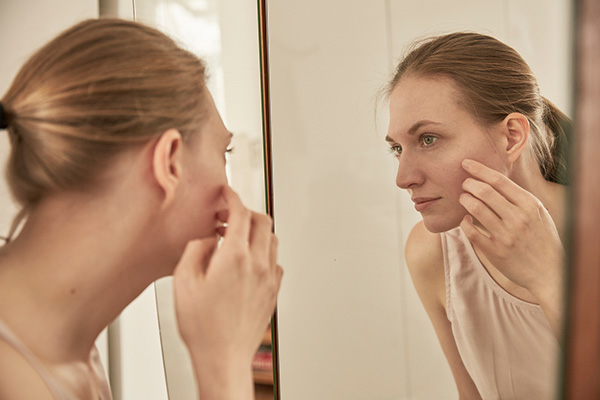What Causes Psoriasis? Understand Triggers and Symptoms
Psoriasis is a chronic inflammatory skin condition that affects millions worldwide. As a beautician, understanding the causes of psoriasis is essential not only for your own knowledge but also to effectively assist clients who might be dealing with this condition. In this article, we will delve deep into the factors contributing to psoriasis, the symptoms associated with it, and essential tips for clients on how to manage and care for their skin.

Understanding Psoriasis
Before exploring the causes of psoriasis, its vital to understand what psoriasis actually is. Psoriasis is characterized by the rapid growth of skin cells, leading to thickening and scaling of the skin. It often manifests as red patches covered with silvery-white scales, commonly located on the elbows, knees, scalp, and lower back. Knowing these features allows beauticians to recognize potential cases and guide clients appropriately.
What Causes Psoriasis?
The exact causes of psoriasis remain a topic of research, but several key factors have been identified. Primarily, it is believed to be an autoimmune disorder in which the bodys immune system mistakenly attacks healthy skin cells. Let's break down these causes:.
Genetic Factors
Genetics play a crucial role in determining who develops psoriasis. If a parent has the condition, there is a higher likelihood that their children may also be affected. Research indicates that specific genes may predispose individuals to psoriasis, emphasizing the need for beauticians to ask clients about family histories during consultations.
Environmental Triggers
Many external factors can exacerbate psoriasis symptoms. These include:
- Infections: Skin infections, particularly strep throat, can lead to the onset of psoriasis.
- Stress: High stress levels can trigger flare-ups, making it essential for beauticians to incorporate stress-relief techniques into their sessions.
- Weather: Cold, dry weather can worsen psoriasis, while mild, humid conditions may improve symptoms.
- Skin Injuries: Cuts, scrapes, or sunburn can trigger new lesions, highlighting the importance of gentle handling during treatments.
Lifestyle Factors
Diet and nutrition, sleep patterns, smoking, and alcohol consumption are lifestyle factors that can influence psoriasis severity. As beauty professionals, suggesting dietary adjustments or healthier lifestyle choices can benefit clients not just for skin health but overall well-being. Encouraging hydration, a balanced diet, and avoiding known triggers like alcohol and smoke can be fruitful.
Hormonal Changes
Hormones can also affect psoriasis, especially in women. Fluctuations in hormones during puberty, pregnancy, or menopause may cause symptoms to flare up or improve. Being aware of these changes can help beauticians provide tailored advice for clients.
Recognizing Symptoms
For beauticians, being able to identify the symptoms of psoriasis is essential. Common signs include:
- Red patches of skin covered with thick, silvery scales
- Dry, cracked skin that may bleed
- Itching or burning sensations
- Nail changes (pitting or discoloration)
- Swollen and stiff joints (indicating psoriatic arthritis)
If clients report any of these symptoms, encourage them to seek professional medical advice. Directing them to resources like AAD Symptoms can empower them with knowledge.
Management and Care for Psoriasis
As a beautician, your expertise can go a long way in helping clients manage their psoriasis:
- Gentle exfoliation: Encourage gentle exfoliation methods to help remove dead skin, which can reduce the appearance of scales. Check out our article on Body Exfoliation.
- Hydration: Recommend moisturizing products that hydrate without irritation, especially during the harsher months of the year.
- Consult with Dermatologists: Always suggest that clients consult their dermatologists for more severe cases, and remind them that treatments may include topical therapies, phototherapy, or systemic medications.
FAQs about Psoriasis
1. Can lifestyle changes help with psoriasis?
Yes, adopting a healthy lifestyle that includes a balanced diet and reducing stress can positively impact the symptoms of psoriasis.
2. Is psoriasis contagious?
No, psoriasis is not contagious. It is an autoimmune condition that cannot be spread from one person to another.
3. How can I help a client with psoriasis during treatments?
Utilize gentle techniques, avoid irritating products, and discuss their specific triggers and symptoms to create a comfortable experience.

Conclusion
Understanding what causes psoriasis is paramount for beauticians who wish to offer holistic and confident care to their clients. By recognizing the symptoms, knowing the triggers, and providing appropriate care and advice, you can support clients in managing their skin effectively. Remember that while beauticians play a significant role, collaborating with medical professionals remains vital for comprehensive management.

